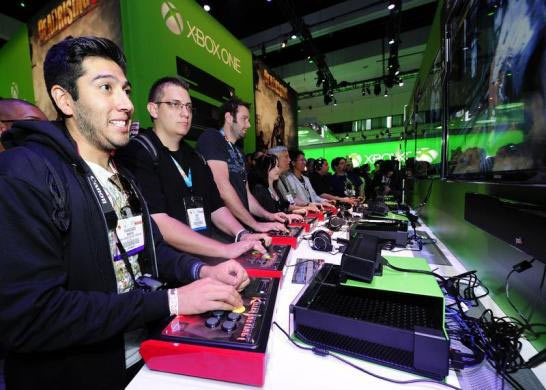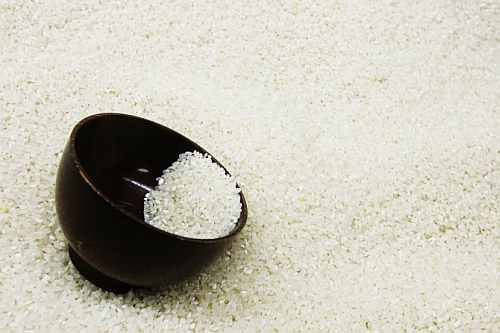 | « Back to article | Print this article |
Top 5: The silliest health myths you must not fall for
A fresh insight into the five things that have been for long viewed as total no-no for our health and well-being.
For long some things have been dismissed as addictive and therefore, bad for us. To convince us the naysayers wave research in our face. Since the media follows research like hound follows a spoor, the naysayers have been able to have their say even more convincingly.
However, things do turn topsy-turvy. We are now smart enough to know that some research may be motivated by vested interests -- rival product companies, moral police and anybody else with the money bags and motivation to think otherwise.
There are set rules, it seems about what may be good for us. Several of these things dismissed as bad have been things we actually rather like. Being told they are bad adds to their allure and addictive value.
Here, Shameem Akthar, yogacharya trained with the International Sivananda Yoga Vedanta Center, gives you a fresh insight into five things that have been for long viewed as total no-no for our health and well-being.
Chocolate
Chocolate, vilified as an addiction that turned sad people into fat sad people, is now enjoying a turnaround of appreciation.
It has been found that chocolate may not necessarily make you fat. It is a matter of what type of chocolate you eat.
Where sugar is masquerading as chocolate (as often happens) it clearly is a bad thing. But where chocolate is appreciated in it original, dark glory, it stops being a sin.
It has been known for a while that the aphrodisiac effect of chocolate is what makes it addictive. But this is precisely why its impact on depression is phenomenal.
Better a bar of dark chocolate than an anti-depressant pill, right? Especially now it is slowly emerging that anti-depresssant pills may actually make you suicidal!
Chocolates are also packed with powerful anti-oxidants that are rich enough to fight the bad type of fat, especially the sort that lands in the wrong spots of your body.
In fact, to tone up the stomach and sagging abdomen, dark chocolate is recommended as the best thing you did to yourself. But the trick is in choosing the right type -- the darker, the more bitter the better.
Video games
The anti-video game lobbyists have for long managed to convince us that video games cause attention deficit, obesity, upper back problems, muscle soreness, vitamin D deficiency and the ultimate evil -- social isolation.
The worst attack has been on the tendency towards violence.
It seems the other side has been secretly gaining ground.
For a few years now, we have been reading sporadic research on why video games may not be so villainous as all that.
Apparently, playing video games does give some "perks" to its addicts: that it encourages logical thinking and thus advances problem solving.
Cognitive problem solving areas of the brain are tweaked, making you think out of the box. It can help firm up your ability to plan things systematically.
It also excites the sensory part of your brain. It helps release reward hormones, always seen as a positive things as far as mood upliftment is concerned and sorting depression.
As far as social isolation is concerned, we could dub reading books under the same category if we are talking of an activity that involves only the self! That some games may be used as learning models for children with special needs and that video games do improve your problem solving skills.
Fats
We now know by heart most of the words in fat lexicon, know the difference between saturated fats, trans fats and monounsaturated and polyunsaturated fats. We know the good from the bad fats and go around with a virtual fat counter in our heads, especially if we are health conscious either with the eye on controlling obesity or to maintain health.
At every step we try to control our intake of fats so we can control our weight and our health. But sometimes we keel over and control too much.
Our diet needs at the least 30 per cent of our entire intake to be fats. This is important for skin health. Fats hold the skin up and make it look supple and young.
Fats keep the hair slinky and healthy. In fact, when you cut down drastically on fat, hair fall will be the first symptom of the fact that the body does not like what you are doing.
Fats are important even to maintain your feelings: having less fats can affect memory negatively, make you feel befuddled, low and depression, irritable and fly off the handle at the slightest provocation.
Believe it or not good fats are absolutely essential to burn the bad fats in our body. Not having the good fats means some of the bad fats will deposit in an ugly fashion in just those spots you don't want them: stomach, thigh, chin -- from where it becomes even more difficult to dislodge it.
Fat-watching may not be all that good. Moderation is the key word here too.
White rice
White rice has had bad press for a while now, being compared unfavourably to its relative -- the brown and red rice. The latter is seen as having more fiber, being low glycemic (hence releases sugar more slowly in the blood and manages blood sugar and hunger levels more efficiently).
However, white rice is finding its feet back again.
In nutritional analysis, it does show up in the higher glycemic index. However, it may not be such a bad thing after all. We often do need the blood sugar spike when working out.
It has the good carbs, which in moderation, may help us work out better. It is also a better option when you are sick -- because it strains the digestive tract better.
In fact, in yoga, it is preferred as the better alternative (to brown) if recovering from ailments of the digestive tract like loose motions, vomiting, irritable bowel syndrome.
It is also a better alternative when breaking a fast.
It has almost similar inflammatory index as the brown rice. It does not have an attractive amount of selenium, but seems to be equally placed in other nutrients as manganese and has more folate levels according to nutritional index.
Many cultures which eat white rice predominantly -- in the south east Asian belt -- and lead comparatively healthy life and do not display obesity as is believed to be the result to relying on it as a main dietary ingredient.
It again seems to be on how white rice is used and what its accessories are if it is part of the main dish.
Sunlight
Have you noticed how in many ad for anti-pollution products you invariably have the sun also streaming down at you, as one among the many environmental dangers daily attacking you!
The sun has had bad press for a long while now, with its UV light said to cause wrinkles, aging, and cancer.
In India it had it even worse, for making the skin dark and causing lots of skin problems -- from rosacea to age spots. But it is not sunlight that is bad.
And pharma companies are having a laugh of their lives as everybody is now toting a vitamin D deficiency and reaching for those supplements. However, vitamin D, though possible to be accessed through supplements, is not absorbed as efficiently as when your skin gets it daily dose of sun.
The synthesis of vitamin D on the skin through exposure to sunlight is the most efficient way to make vitamin D for yourself. This method also prevents Vitamin D toxicity as may happen when overdosing on supplements.
Overuse of sunscreen, leading lives that are sedentary and indoors mostly can all be even worse. Try to get some amount of sunlight, before 10 am or after 3 pm.
But to avoid sunlight altogether will cause bone loss and weakening. Believe us, having weak bones will cause the skin to sag, adding years to your face.
Vitamin D is also involved with respiratory efficiency, cardiovascular health, bone and tissue health, strong immunity.It is also involved with moods, keeping you upbeat.
Clearly, sunlight is not a villain it is made out to be. Timing might be the key to managing the right dosage of sunlight.




